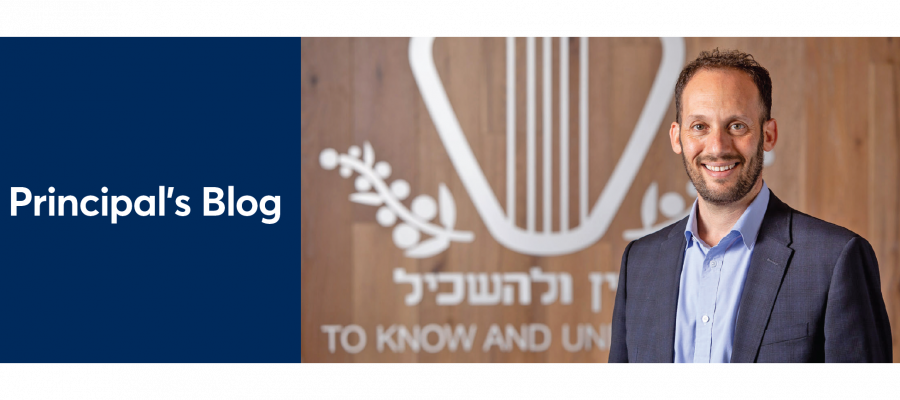
Positive Expectations
Every morning across the School we have heard the blasts of shofar from our Year 2 ba’ale tokea (masters of the blast) at the Dandenong Road Campus and a roster of student and staff volunteers at Magid Campus. We are now well into the month of Elul, the period where we sound the Shofar every day so that we can prepare spiritually for the forthcoming new year.
This is a time to take stock of our place in the world, to make amends for our missteps and to commit to the changes that will help usher in the best version of ourselves for the forthcoming year.
As we enter this period of reflection, we might have in mind a specific wrong that we wish to right or we may be focused on setting intentions for 5786.
This approach reaches its zenith when we arrive at the Viddui (confessional) prayers of Yom Kippur. The plurality and the inclusive language of the Hebrew prayer is instructive. There is a recitation of an alphabetical list of the ways we have sinned – ashamnu, bagadnu, gazalnu … “We have abused, we have betrayed, we have been cruel …”
The custom of beating our chest with each new word of confession and the use of the term “we” is somewhat incongruous here. We seem to be taking individual responsibility in the deeply personal bodily action of hitting our hearts while speaking of the actions as a collective. How can we confess to sins committed by others? In a Jewish context, this is a beautiful moment where we acknowledge that Kol Yisrael Arevim Zeh Bazeh – all of Israel is responsible for one another.
The tradition of our Progressive liturgy is to accompany the Viddui with the Ahavnu prayer authored by Rabbi Avi Weiss. In this prayer we recite a different alphabetical list. This one declares all the ways that we have excelled and acted with integrity. We say Ahavnu, barachnu, gadalnu, dibarnu yofi… “We have loved, we have blessed, we have grown, we have spoken positively…”
The contrast between these two approaches has a parallel in the way that we approach behaviour management at our school. In a school context, we adopt a positive behaviours approach whereby we identify the traits that we wish to see, the values we aim to hold and the behaviours that align with these. We set our expectations positively.
We make clear to our students that we believe that they can meet these expectations and function as positive contributors to our community.
Of course, there are times when individuals transgress these ideals. In these instances our primary aim is to offer students opportunities to repair relationships that have been breached and to win back trust.
Whether it is in relation to other students, or to the teacher, it is vital that relationships are restored so that we can move forward positively without the weight of past failures.
Additionally, while we explicitly eschew collective punishment, we do link our expectations with a sense of obligation to community and to a respect for the rights of others.
And just like Rabbi Weiss’ wonderful addition to our liturgy, we try to catch our students doing good things and to highlight these moments so that they feel pride in their accomplishments and also act as positive role models for their peers.
Every morning as I hear the Shofar, I am reminded that there is something very beautiful in being afforded an annual opportunity to take spiritual stocktake, to reset our compasses and to strive to reduce the gap between our values and our actions. Tekiyah!
Shabbat Shalom,
Marc Light
